SUMMARY
This is AI generated summarization, which may have errors. For context, always refer to the full article.
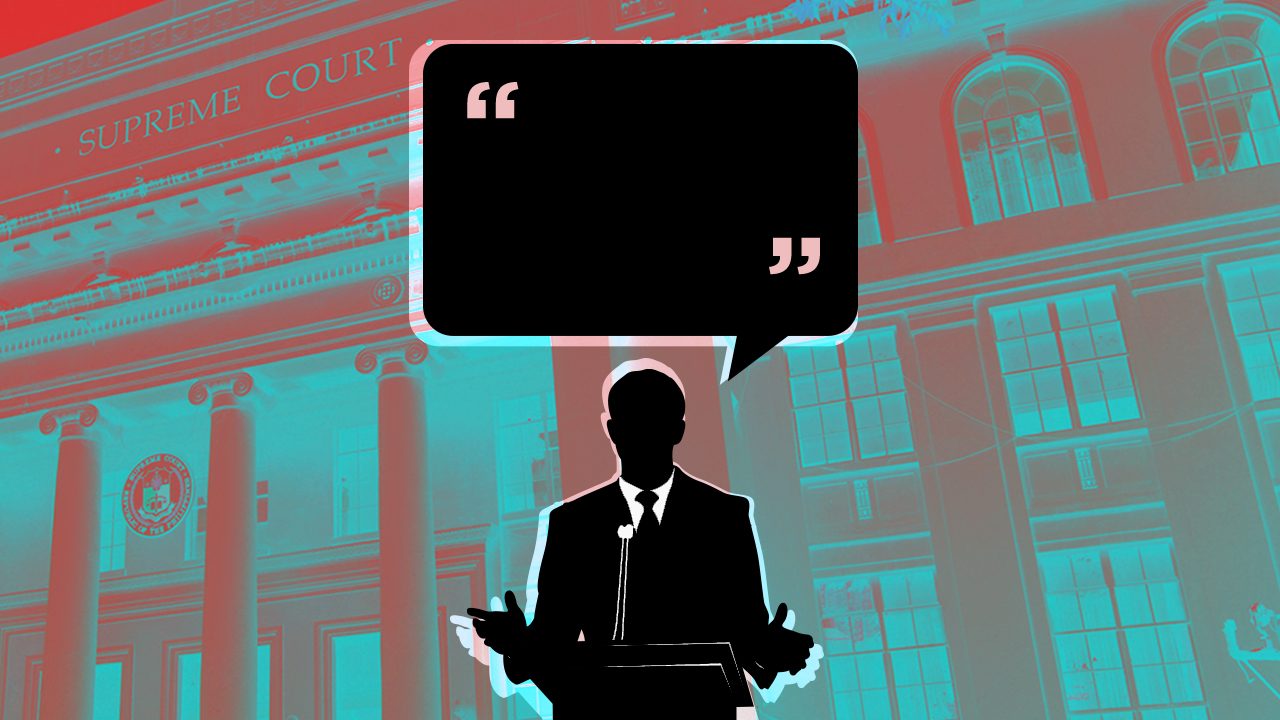
The last 4 years under President Rodrigo Duterte has proven very tumultuous for the Philippine justice scene, and 2020 was not any different.
Here are 10 quotes from court decisions that changed our legal landscape, from big to small, for better or for worse.
1. Supreme Court ruled that an anonymous tip was not a valid cause to search a moving vehicle for a person supposedly carrying illegal drugs. It was a strong statement against violation of consitutional rights in the war on drugs, but even drug war critics are cautioning against high hopes about the decision.
This Court will not sit idly by and allow the Constitution to be added to the mounting body count in the State’s war on illegal drugs.
People vs Sapla, 11-3, J. Caguioa Ponente
Read the decision here
2. The Court of Appeals reversed itself in a habeas data petition of a lawmaker named in President Rodrigo Duterte’s narcolist, and compelled the government to provide proof of its accusation.
That a man may be denied his rights at the mere whim of government, is anathema to a democracy, if the ideal that indeed freedom prevails in our land is to be upheld
Court of Appeals Special 8th Division, J. Bruselas Ponente
Read the decision here
3. A lower court in Dumaguete charged government anti-drug agents of contempt after concluding that the evidence against alleged drug suspects were fake, and the buy-bust was staged.
History will judge our present actions, and we members of the bench and bar, will be called to account on what we did to protect and secure the weakest among us, and whether we enabled the powerful to lead us astray from the path of our Constitution
Judge Amelia Lourdes Mendoza, Negros Oriental Regional Trial Court Branch 34
Read the decision here
4. In convicting Rappler CEO Maria Ressa and former researcher-writer Reynaldo Santos Jr of cyber libel, a Manila lower court upheld the prosecution’s legal theory that from a 1-year prescriptive period, cyberlibel has a 12-year prescriptive period under the young Cybercrime Law. Legal experts have called the 12-year prescriptive period unconstitutional. The conviction is on appeal.
The offense shall prescribe after 12 years following the provision of Section 1 of Article 3326…Thus the one-year prescriptive period for ordinary libel does not apply.
Judge Rainelda Estacio Montesa, Manila Regional Trial Court Branch 46
Read the decision here
5. This was a decision 5 months in the making, only for the justices to agree on an anti-climactic move to remand to the lower court the petition to free vulnerable political prisoners on humanitarian considerations. As justices debated what they should do, baby River Nasino was born, and died, highlighting the failure of the justice system to protect an innocent child.
I believe we have a role to play in protecting the baby from adverse consequences that are not of the baby’s own doing
Associate Justice Amy Lazaro Javier, Separate Opinion, Almonte vs People
Read the decision and opinions here
6. A Cebu lower court junked the charges against artist Bambi Beltran, saying that the latter’s satirical posts about the coronavirus crisis in the city are protected speech. Beltran was cleared of charges of violating RA 11332, the law used by the government to arrest and detain so-called violators of quarantine, and the Bayanihan to Heal as One Act which had “dangerous” sanctions against supposed fake coronavirus news.
Any court conscious of its mandate to uphold the Constitution should and must wield it as a shield against any means to silence political and social criticisms, a practice eerily reminiscent of the official excesses during the ‘Dark Ages’ of our very own history not so long ago
Judge Yvonne Cabaron Artiaga, Cebu City Municipal Trial Court Branch 03
Read the decision here
7. In a rare writs victory for activists, the Supreme Court junked an Amparo case against Leftist leaders over an accusation that they abudcted and radicalized a young activist. This case was supported by the military in an ongoing and intensifying crackdown on activism.
As she has already attained the age of majority, AJ – at least in the eyes of the State – has earned the right to make independent choices with respect to the places where she wants to stay, as well as to the persons whose company she wants to keep. Such choices, so long as they do not violate any law or any other persons’ rights, has to be respected and let alone, lest we trample upon AJ’s personal liberty – the very freedom supposed to be protected by the writs of amparo and habeas corpus.
Lucena vs Elago, 14-0, CJ. Peralta Ponente
Read the decision here
8. A lower court in Olongapo cleared a teacher of charges of inciting to sedition, over a tweet that offered a reward to kill President Rodrigo Duterte. The teacher, who was hunted and arrested without warrant by agents, made an extrajudicial confession to the media in a perp walk. The court ruled that extrajudicial confession is inadmissible evidence, and that the warrantless arrest of the teacher was not valid. This decision came amid a streak of warrantless arrests by state forces, aided by the DOJ’s own evolving definition of what it meant.
No matter how contemptible or reprehensible the post is, the person or persons suspected to be responsible to the posting of the subject provocative text should be afforded their constitutional rights.
Judge Richard Paradeza, Olongapo City Regional Trial Court Branch 72
Read the decision here
9. In shielding Duterte from disclosing records of his state of health, the Supreme Court ruled that the appropriate mode of disclosing the president’s state of health to the public, as mandated by Section 12, Article VII of the Constitution, is left to the discretion of the president himself. The majority decision based that on transcripts of the constitutional commission. This decision continued the streak of the Supreme Court upholding presidential discretion in the time of Duterte.
It clearly signals an overly deferential attitude to a sitting President…To interpret the deliberations of the 1986 Constitutional Commission as a grant to the President of the absolute choice between divulging and concealing a serious illness and, by extension, the state of the President’s well-being, defeats the purpose of the provision and renders it wholly ineffective if not completely inutile. This is a dangerous path which should not be taken.
Associate Justice Alfredo Benjamin Caguioa, Dissenting Opinion, De Leon vs Duterte
Read the decision and opinions here
10. The Supreme Court affirmed that marital infidelity, which results in proven emotional anguish, is a form of violence subject to penalties under Republic Act 9262 or the Anti-Violence Against Women and Children (VAWC).
The law does not require proof that the victim became psychologically ill due to the psychological violence done by her abuser. Rather, the law only requires emotional anguish and mental suffering to be proven.
Supreme Court First Division, Araza vs People, CJ. Peralta Ponente
Read the decision here
– Rappler.com
Add a comment
How does this make you feel?
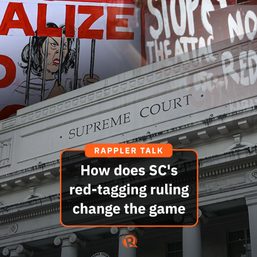
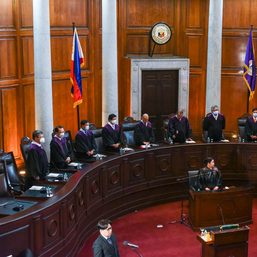
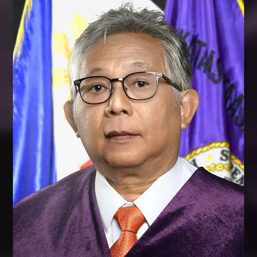
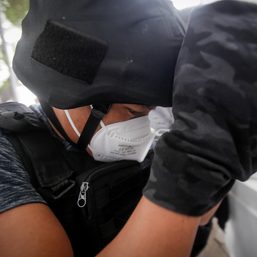


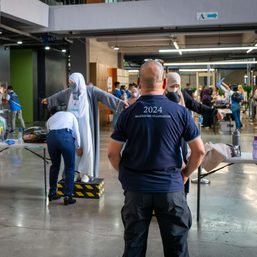
There are no comments yet. Add your comment to start the conversation.